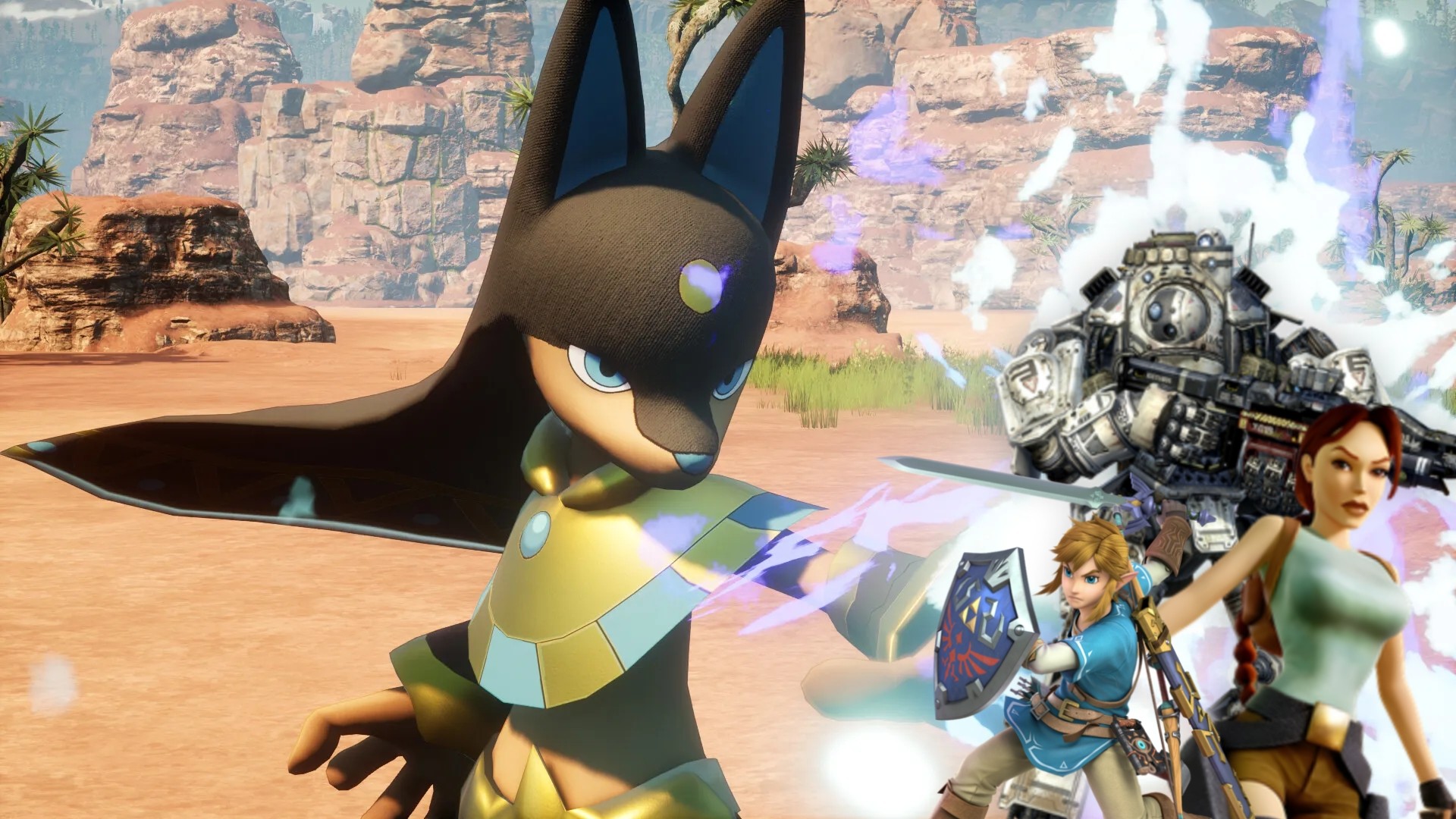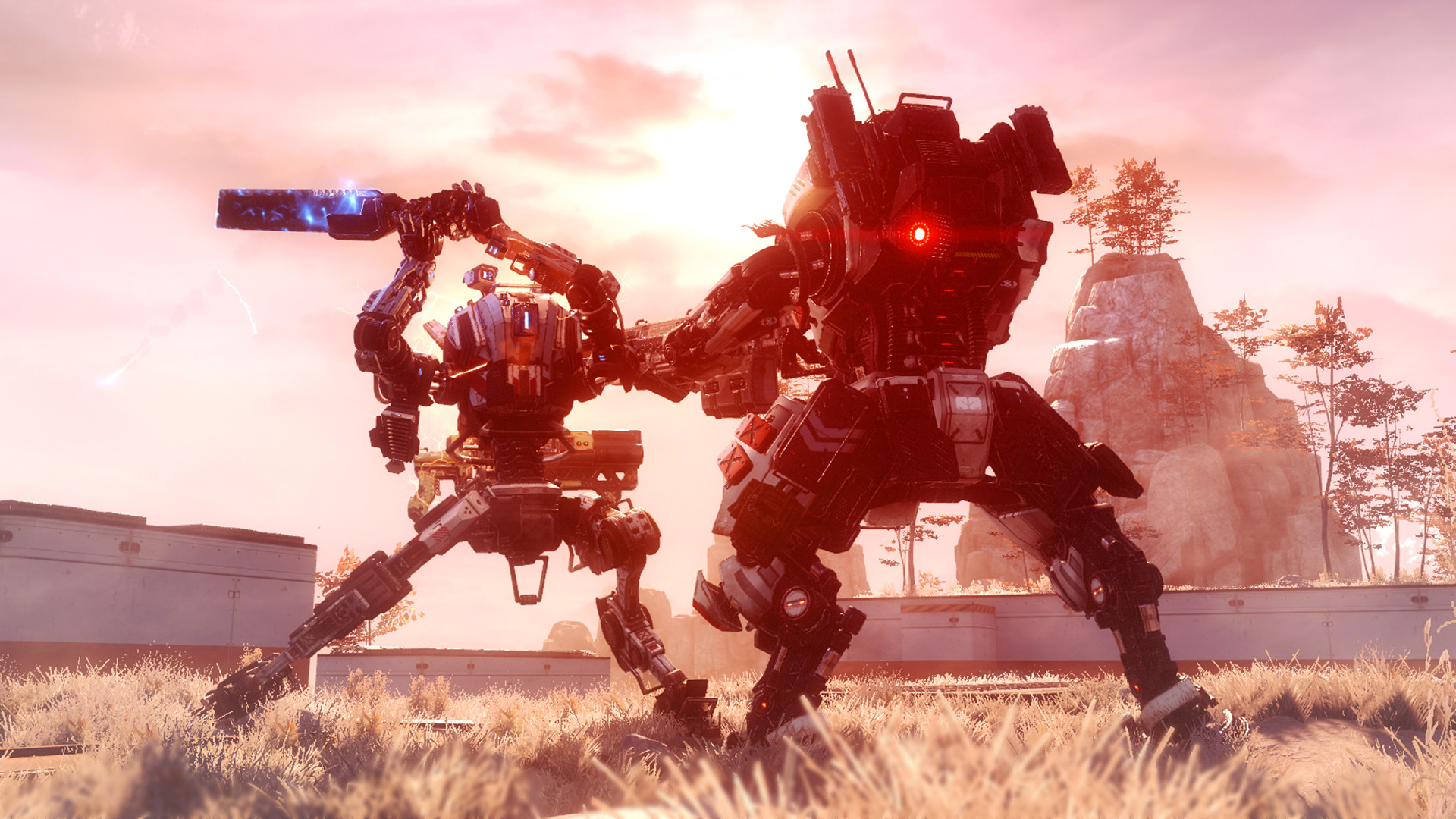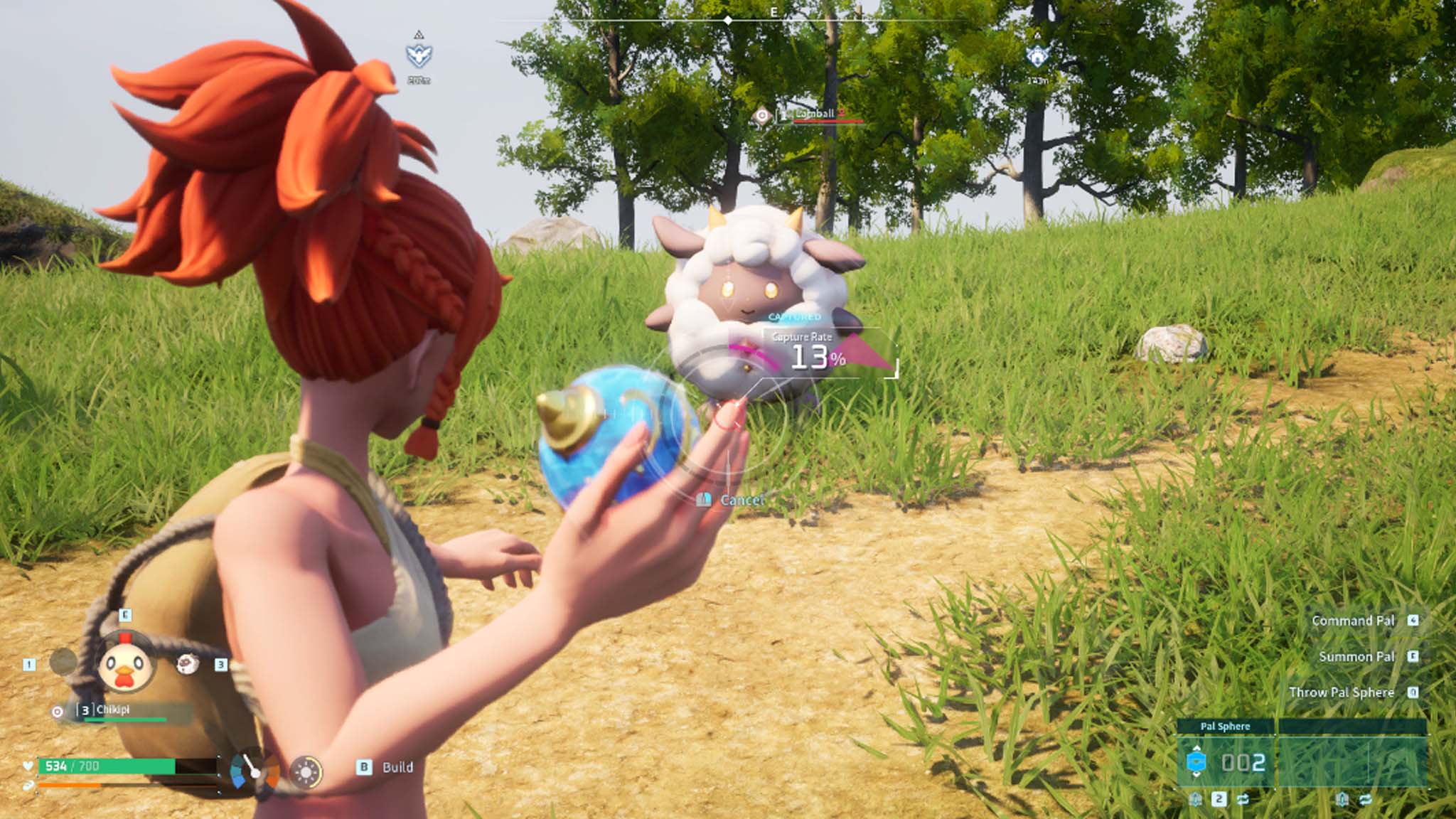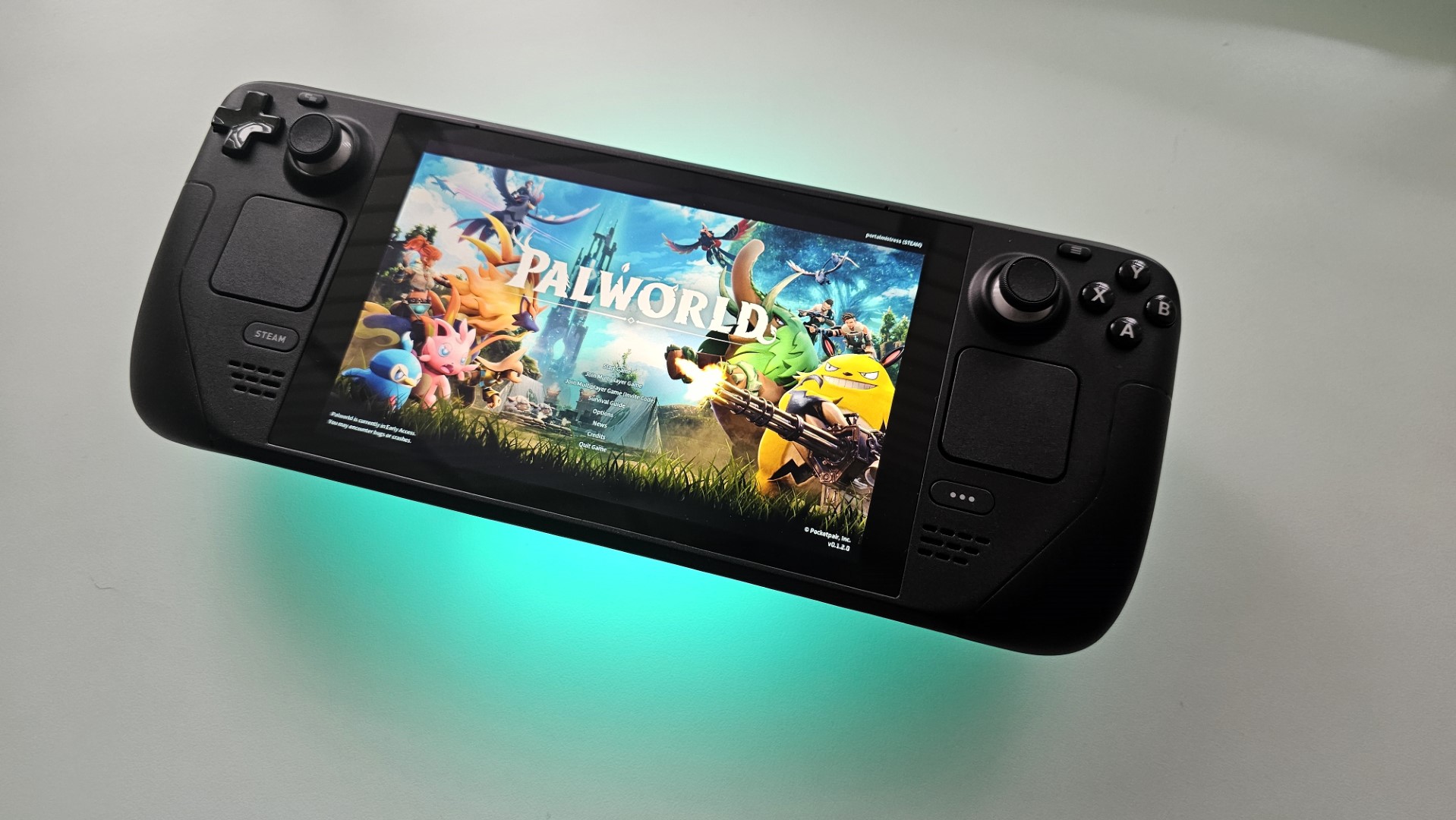
Recently, an exciting development surfaced concerning Pocketpair’s defense strategy in their patent infringement dispute with Nintendo over the popular Xbox Game Pass game, Palworld.
Thanks to the thorough investigative work of GamesFray, a specialized platform focusing on legal matters within gaming, we now have insights into Pocketpair’s counterarguments from the Tokyo District Court.
These revelations provide a clearer understanding of Pocketpair’s approach to addressing Nintendo’s allegations and could potentially bring about substantial changes in the gaming industry.
It has been suggested that several patents Nintendo claims are being infringed by Pocketpair are for mechanics commonly found in numerous other games, and it appears that the Palworld developers are adopting this very tactic. We now have a list of all the games mentioned in the lawsuit, and some of them might catch you off guard.
Pocketpair’s argument involves the role of prior games

In this situation, Pocketpair is contesting Nintendo’s patents by bringing up prior art – games and technologies that they argue contain similar mechanics which Nintendo has not disputed. The underlying claim is that these patents should never have been granted to Nintendo, as the alleged mechanics were already in existence.
Pocketpair cites a variety of games in their argument, such as Craftopia (one of their own titles), ARK: Survival Evolved, Rune Factory 5, and even The Legend of Zelda by Nintendo. Furthermore, they mention mods like Pixelmon for Minecraft and Nukamon for Fallout 4 in their defense, suggesting that even user-created modifications have been taken into account.
Here is the comprehensive list of games mentioned in the case, as meticulously compiled by GamesFray:
1. Craftopia (developed by Pocketpair)
2. ARK: Survival Evolved
3. Rune Factory 5
4. The Legend of Zelda (by Nintendo)
5. Minecraft (with the Pixelmon mod)
6. Fallout 4 (with the Nukamon mod)
- Craftopia, released by Pocketpair in 2021
- Pocket Souls (a Dark Souls 3 mod released in 2020)
- Ark: Survival Evolved, or ARK released by Studio Wildcard in 2017; partly in combination with a Pokémon mod
- The Legend of Zelda, published by Nintendo
- Pokémon Legends: Arceus, published by Nintendo
- Pokémon Sword and Pokémon Shield, published by Nintendo
- Final Fantasy 14 published by Square Enix
- Tomb Raider originally created by Core Design
- Far Cry 5 published by Ubisoft
- Monster Super League, a mobile game by Smart Study Games
- Pixelmon mod for Minecraft
- Pikmin 3 Deluxe
- Rune Factory 5 by Marvelous
- Titanfall 2 by Electronic Arts
- Path of Exile by Grinding Gear Games
- Octopath Traveler by Square Enix
- Dragon Quest Builders by Square Enix
- Nexomon by VEWO Interactive
- NukaMon mod for Fallout 4
- Monster Hunter 4G/Ultimate by Capcom
- ArcheAge by XL Games
- Riders of Icarus by VALOFE
Pocketpair has highlighted the Unity game engine as a precedent for their argument, suggesting that similar mechanics found in various games such as Rune Factory 5, Titanfall 2, and Pikmin 3 Deluxe demonstrate the ability to perform actions to release monsters or items. They also point out examples like Pikmin 3 Deluxe, Far Cry 5, and Tomb Raider to illustrate the variety of throwable objects in games.
Games such as Pocket Souls, Octopath Traveler, Monster Super League, and Final Fantasy XIV demonstrate targeting creatures and understanding capture chances, while Nintendo’s patents appear less unique or innovative due to these combined features under Japanese patent law. Additionally, they argue that the concept of varying success rates for capture items in Pokémon games has been around for over 3 decades, making it a well-established idea. In essence, Pocketpair is saying that this aspect of Nintendo’s patents is no longer novel or groundbreaking.
What is the Pocketpair vs Nintendo case all about?

Nintendo claims that Palworld violates three of its patents concerning gameplay features, notably in the aspects of capturing creatures and smoothly switching between different gaming experiences.
- Patent No. 7545191 – This patent, owned by Nintendo and The Pokémon Company, covers a mechanic for capturing creatures by throwing an object, such as a Poké Ball, in a virtual environment. It involves defining the aiming direction based on player input and determining capture success. Nintendo claims that Palworld’s creature capture system is too similar to this patented gameplay method.
- Patent No. 7493117 – This patent focuses on character movement and collision, specifically in scenarios involving character interactions and pathfinding. It also addresses a mechanic where players engage in battles by launching one creature at another. Nintendo alleges that Palworld’s mechanics around creature combat infringe on this patent.
- Patent No. 7528390 – This patent describes a dynamic mounting system for characters moving across land, air, and water, allowing seamless transitions between different types of terrain. Nintendo argues that Palworld’s use of a similar system for player-controlled creatures and mounts infringes on this patent as well.
Different genres, different mechanics at play
According to Pocketpair’s argument, Palworld doesn’t violate Nintendo’s patents if they are found to be valid. In other words, they claim that Palworld doesn’t infringe on Nintendo’s patents, regardless of their legal status. This stance has been supported by the following counterarguments:
- Gameplay mechanics: Pocketpair contends that Palworld doesn’t rely on the same button operations or clear distinctions between combat and non-combat modes that Nintendo’s patents describe.
- Genre differences: While Nintendo’s Pokémon games are role-playing games with creature collection as a core mechanic, Palworld is primarily at heart a survival and crafting game.
In response to every patent in question, Pocketpair has presented a rebuttal, citing all the games mentioned below and explaining why they employ seemingly analogous features.
The main idea here is that video games have been influencing each other since their inception. If Nintendo wins this case, what implications will this have on future creativity?
This case will have wider ramifications outside of Palworld
The focus of this matter revolves around a key dilemma in the gaming world: striking a harmony between preserving genuine innovation within a developer’s intellectual property and fostering creativity.
Game creation frequently involves developing upon existing concepts, merging features from previous games to generate novel experiences. For instance, games such as Binding of Isaac and Slay the Spire paved the way for Balatro to emerge.
It is likely that you could identify numerous connections to classic games in any contemporary video game today.
If Nintendo’s patents are upheld, it might establish a precedent that could make it more challenging for developers to innovate without facing potential legal repercussions. Although this dispute is currently being addressed in Japan, there are also efforts by Nintendo to bring the case to the United States.
What’s happens next?

The Tokyo District Court is currently examining these points and will determine if Nintendo’s patents are legitimate and whether Pocketpair’s Palworld violates them. GamesFray is closely monitoring this case and offering thorough coverage of each development, making it worthwhile to save the website on your browser if you have any curiosity about this legal matter. Florian Mueller, who runs the site, has provided insightful analysis in past gaming lawsuits, such as those involving Microsoft and Activision Blizzard’s acquisition.
Currently, Pocketpair is holding strong, questioning not only the legitimacy of Nintendo’s patents but also their relevance to Palworld.
It’s an interesting debate! Which side do you find yourself on – are you more inclined towards Nintendo or Pocketpair in this scenario?
Read More
- WCT PREDICTION. WCT cryptocurrency
- LPT PREDICTION. LPT cryptocurrency
- Chrishell Stause’s Dig at Ex-Husband Justin Hartley Sparks Backlash
- Guide: 18 PS5, PS4 Games You Should Buy in PS Store’s Extended Play Sale
- The Bachelor’s Ben Higgins and Jessica Clarke Welcome Baby Girl with Heartfelt Instagram Post
- SOL PREDICTION. SOL cryptocurrency
- Gold Rate Forecast
- PI PREDICTION. PI cryptocurrency
- Shrek Fans Have Mixed Feelings About New Shrek 5 Character Designs (And There’s A Good Reason)
- AMD’s RDNA 4 GPUs Reinvigorate the Mid-Range Market
2025-04-18 21:39